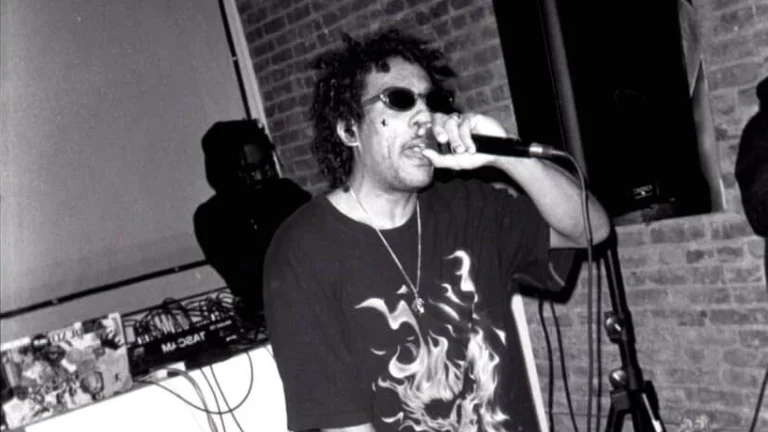If it’s been a hot minute since you’ve explored the plush pizzicatos of R&B and neo-soul, perhaps it’s time to give Tiril Jackson a listen. She threads the needle of contemporary psychedelia using the meticulous precision of musical theory, resulting in a retro-future sound you’d hear at an after-hours club in the 90s. The Norwegian singer, songwriter, and producer lives in Boston, is an alumnus of Berklee College of Music, and has recently released a stellar EP titled Who Are You?—a showcase of her vision to create brass-infused soundscapes expounding on her talents. With 6 songs exploring different facets of modern jazz while competing with each other to be smoother than the next, Jackson’s tunes deserve a spin.
There’s an essence of Zero 7 in Jackson’s compositions, such as “Can You Hear Me?”, in which her lilting, blues-tinged vocals complement the downtempo chill of a sparse Rhodes piano. It conjures the same atmospheric elegance that made Zero 7 a cornerstone of early 2000s chillout music. Haunting harmonies tiptoe and tickle the listener’s sensory extremities—something that calls for multiple plays of most songs, if only to sate curiosity.
The cashmere cool of this singer’s music isn’t lacking for groove however, with “Amnesia” featuring a locomotive-steady beat overlaid with sidestick clicks and a buttery plush bassline. It ends with drummer Juan Botero going nuts and doubling—nay tripling—down on his jazz chops for all its worth. If you had to give someone an example of an explosive crescendo, this would be it. There are definitely some gospel influences in the sound as well, after all, soul music almost always utilizes some form of gospel singing. “Carry all my flaws, help me find my way, Lord I need your strength,” she sings, but, without so much gravitas as to sound like a bawling mess.
Jackson is captain of her ship, guiding her sonic vessel through all manner of flotsam with a revolving crew of session musicians who are tighter than prison shoes. Her expansive arrangements work in tandem with the variations of her vocal delivery to create songs fulfilling both the needs of easy listening and engaging intricacies. Sliding down to sultry lows makes for good vibrations, while the ease with which she navigates the higher registers is explosively acrobatic—and then there’s the intimate melodicism of her whispered vocals, which craft a wholly new and secret world between musician and listener. Lyrics like “Table for two, who are you, order for one,” from the song “Who Are You?”, highlight the cerebral sass of Jackson. Meanwhile, the musicianship is perfectly accented by saxophonist Jazzy Christophe’s reactionary whispers and solos. Then there are the lines, “Generational Trauma, is that all we come from,” on the song “Generational Trauma.” This one is a direct spotlight on the self-awareness of the current crop of her peers, and may even be a little dig at weaponized therapy-speak (though that’s a whole different conversation). The song’s title alone signals her intent to add a combination of her own personal journey and artistic imprimatur to the song. Interestingly, the phrase ‘generational trauma’ wasn’t even part of the mainstream conversation until a few years ago, which is why this track is contemporary not just in sound, but in subject as well.
Jackson’s choices in chord changes and vocal notes are also almost always surprising and unpredictable, in the best way. A good example of this is the song “Call Me,” which keeps you on your toes, and is a pleasant change from most commercial music, weaving in and out of the various instruments. This kind of fluctuating format gives you a chance to challenge yourself and grow as a listener. The song features a gorgeous bassline courtesy Matthew Ashley, and the ‘oohs’ of a choir overhead, but the kicker is in how Jackson crafted a lead vocal melody that transforms what could have been a minimalist instrumental into something deeply captivating and complete. It’s a heartbreaking, unembellished piece of musical nourishment that makes a solid case for beauty in simplicity. And if you thought that was a tearjerker, the final track, “Faith,” gets even heavier, adding layer after layer of emotional weight using a painfully pure piano reverie. With its barebones string section featuring violins by Ashanti LaMange and Margaret Barbour, and a cello by Chris Tate, the last song on this EP takes the cake in terms of musical melancholy.
On Who Are You? Jackson masterfully blends emotional depth with musical sophistication. Featuring lush arrangements, whimsical chord progressions, and her trademark evocative vocals, the project covers a multitude of sounds, offering something for both the casual listener and the discerning jazz junkie. Her music stirs emotion and invites reflection, while effortlessly avoiding the trappings of boredom thanks to her brilliant backing bandmates. The subject matter meets at the intersection of an individual wrestling with the various degrees of knowledge she possesses in separate fields, be it interpersonal, generational, or spiritual. Rather than be a mute spectator to her inner struggles though, Jackson has turned this inner monologue outward, utilizing her extensive musical skills to transform these reflections into art.





